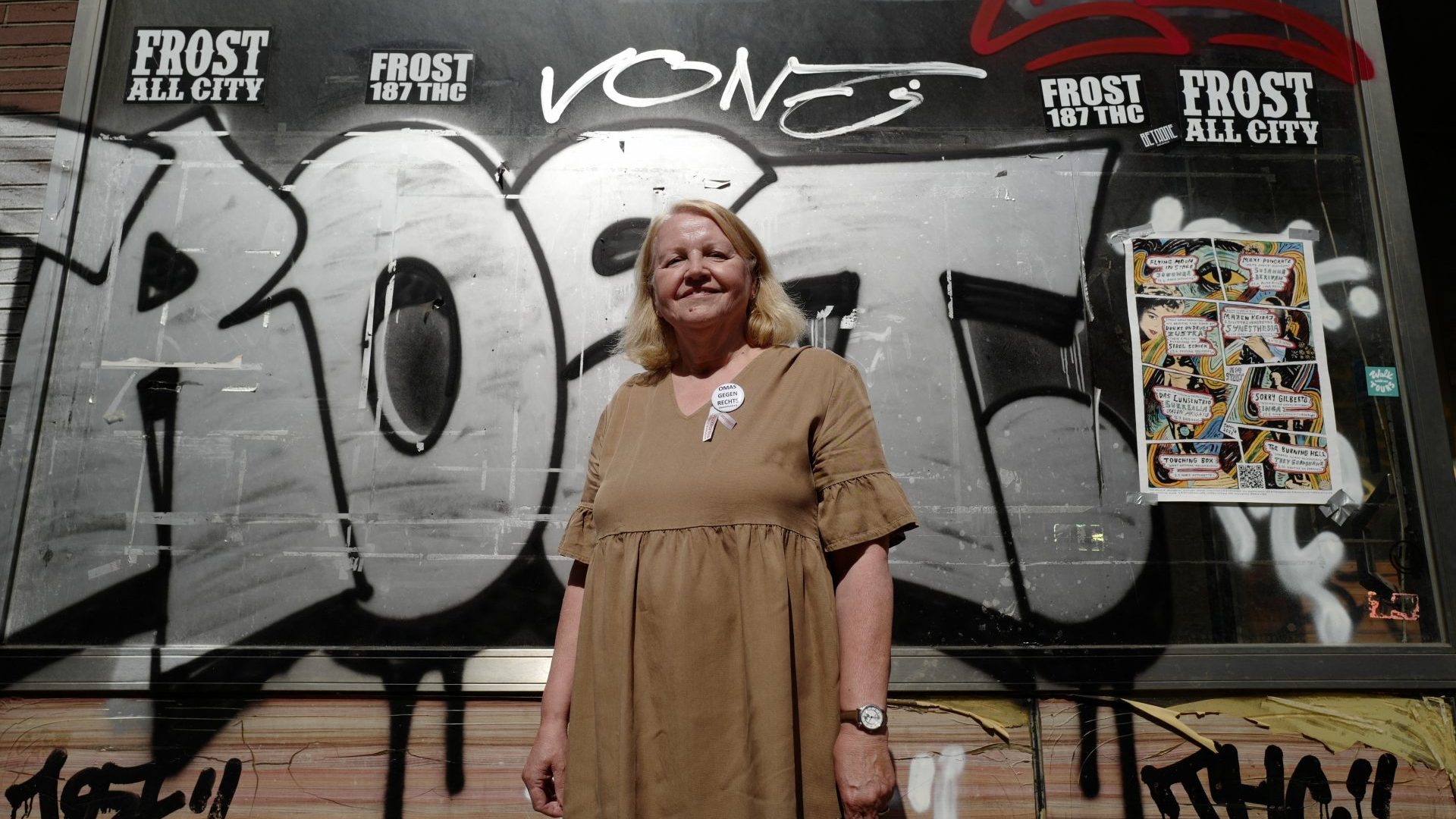Picture this, if you will: hundreds of grey-haired grannies ganging up to face down a group of neo-Nazi skinheads. Some of the skinheads have beer bottles in their hands. The grannies are armed with nothing more than umbrellas and hand-knitted woolly hats. It sounds like a corny sketch for a TV comedy show. But no. It’s election time in Germany’s eastern Länder (federal regions), and the grannies are out on the streets.
There’s no Granny Party. The movement, called in German Omas gegen Rechts (Grannies against the right), has grown into a national and international force since it was founded in 2017 by an Austrian psychotherapist and evangelical priest, Monika Salzer.
It is widely assumed here that apathy and low voter turnout will result in a far-right victory. But election posters showing a cartoon granny with a rainbow flag carry a simple message: “Granny says – go out and vote!” Apart from the rainbow, a symbol of tolerance, sexual liberation and diversity, there is no instruction on how to vote.
In between elections, the Grannies are busy knitting and babysitting. But they also raise funds, for example by baking and selling cakes, to finance the poster campaign and a set of beer mats that make up a pub quiz.
In Leipzig, my new home town, the Grannies have raised enough money to install three new Stumblestones (Stolpersteine). These are little brass plaques inscribed with the names of people whom the Nazis deported and murdered in the 1930s and 40s. The new plaques commemorate the Wesly family – Hermann, a Jewish publisher of music and books, his wife, Berta, and their daughter, Margot. Berta and Hermann were taken to Auschwitz and murdered in the gas chambers. Margot escaped to England – but the British authorities put her in a concentration camp too, as an enemy alien.
A violin and an accordion were played during the installation of the little plaques where the Weslys’ house once stood. The stonemason’s hammer punctuated the music with a slow beat. Then Granny Gisela read out a short account of how the family was persecuted and how we must never forget. Many spectators were in tears. The memorial is on the doorstep of the new building that now stands on the site – a kindergarten. Its head teacher joined the ceremony and promised to find a way of explaining the story to the kids “without scaring them too much”. I remarked that it was a very special moment. Granny Sylvia put me right.
“Sadly, it’s not so special. This brings the number of Stolpersteine in Leipzig to almost 800. There is one on almost every street,” she said, before inviting us all to join her for coffee and cake.
Later she shared a link to the Stolpersteine app in the Google Play store (also on Apple). It’s true – there are hundreds of Stumblestones. Many are not for Jewish victims, but for brave souls like William Zipperer who tried to stop the Nazis and save their neighbours. He was executed in January 1945 for plotting against the state.
As a mark of respect, the Grannies regularly go out to polish the small memorials set into the pavements, to light candles and lay flowers.
There is another side to the movement. They are part of the Antifa, Germany’s radical ultra-left. Not quite as radical as Lina Engel, the antifascist activist who is serving jail time in Dresden for plotting physical attacks on neo-Nazi pubs and meetings. Nor have any Grannies been caught setting fire to building sites where executive homes are replacing the old affordable blocks of flats – a typical Antifa action.
They upload videos to TikTok. And they are taking their campaign out of the city and into villages and suburbs where right wing parties recruit people who feel neglected or “left behind” by the Berlin government.
“Solidarity without borders instead of right wing propaganda,” says the Radical Grannies’ poster, urging supporters to join them in a mass demonstration. These are Grannies who don’t knit.
Jane Whyatt is a journalist, newsreader and independent producer



